Earlier this year, we reviewed the Xiaomi 12 Pro, which we called Xiaomi’s first true flagship. It featured Qualcomm’s then-fastest mobile processor, a bright, high-resolution screen and a sleek, almost Scandinavian design. The price was accordingly, for the Xiaomi 12 Pro was also the most expensive smartphone so far from the Chinese manufacturer. However, it was nowhere near as expensive as the very expensive top models from Apple, Samsung and Sony. Instead, the Xiaomi 12 Pro cost exactly the same as another top Chinese smartphone, the OnePlus 10 Pro.
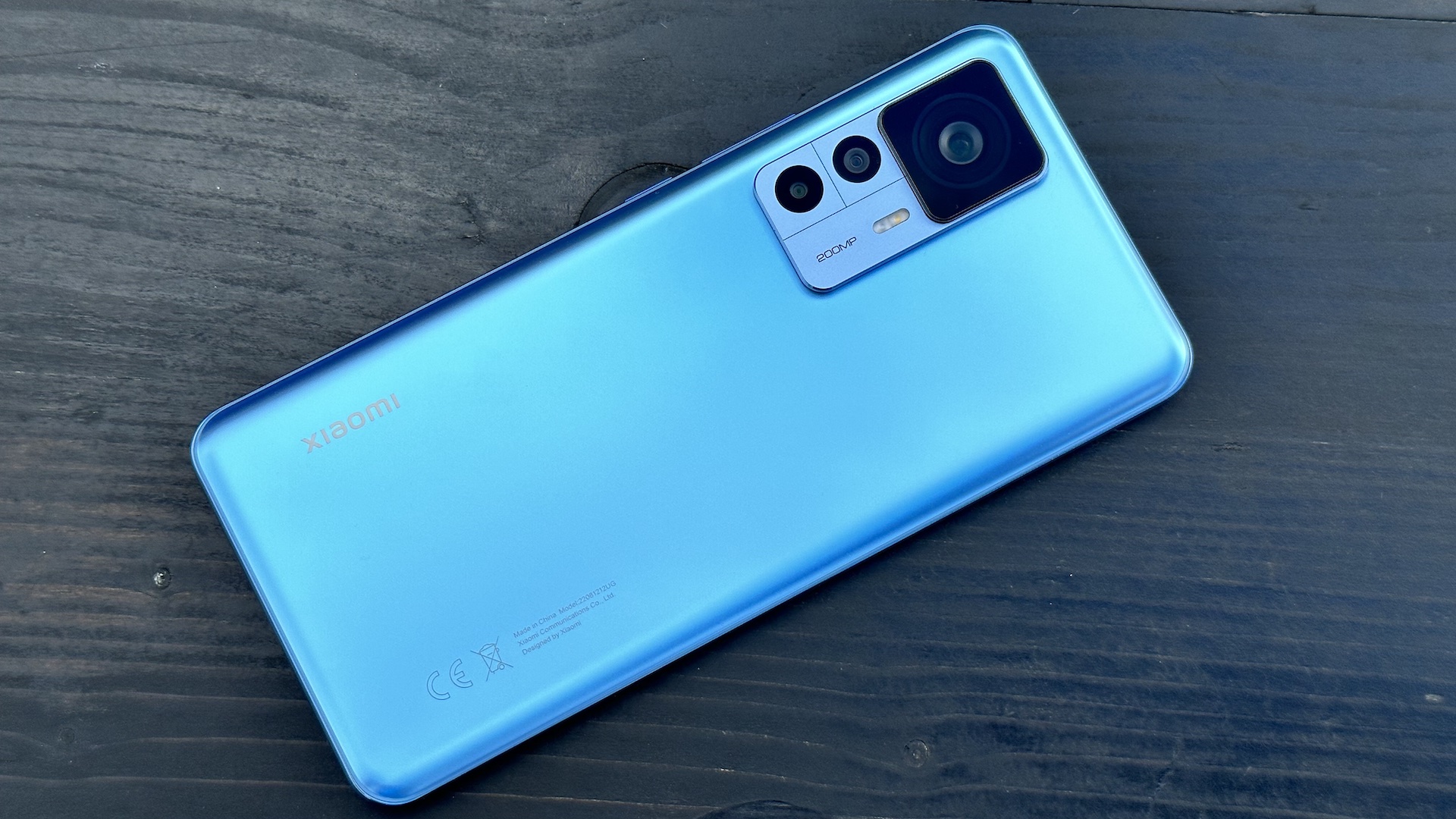
And just like OnePlus, which launched the OnePlus 10T in late summer – a downgraded and cheaper, but also faster, successor to its flagship phone from earlier this year – Xiaomi has now come up with a successor to this spring’s flagship model. It’s the Xiaomi 12T Pro, which comes with a faster processor and more megapixels than its predecessor, but is still – just like the OnePlus 10T – really a kind of downgraded upgrade.
The price is now pushed below €900, and when we take a closer look at the Xiaomi 12T Pro, we quickly discover that the phone actually has more in common with last year’s T-model, namely the Xiaomi 11T Pro.
The Xiaomi 12T Pro has a completely different camera layout than the Xiaomi 12 Pro, and the manufacturer has dropped the same features as was the case with the Xiaomi 11T Pro. For example, the new T model has to do without wireless charging, just as the screen is a conventional AMOLED screen, where the Xiaomi 12 Pro could boast LTPO technology. What this means in practice, we’ll come back to.
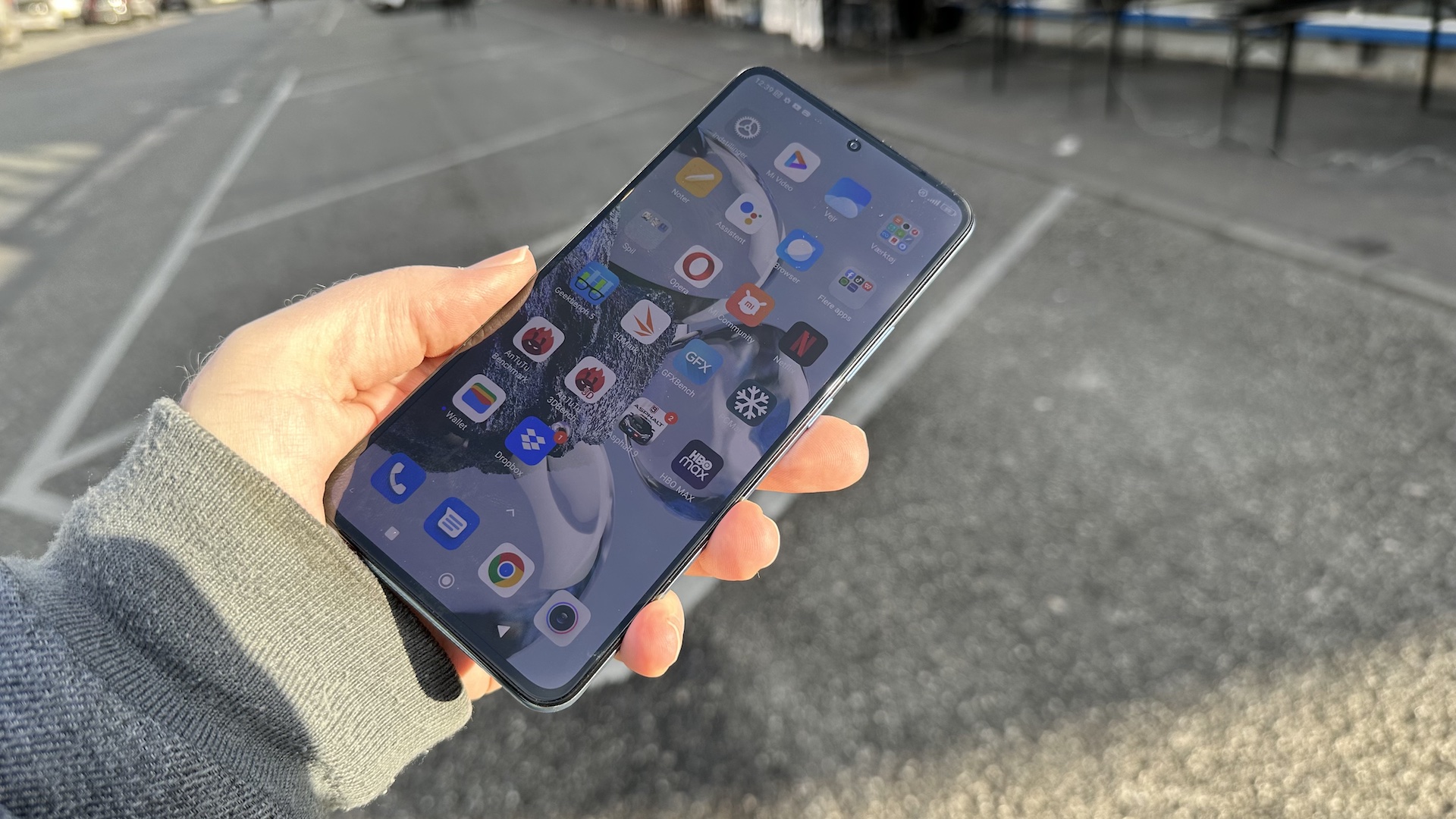
Appearance and construction
At first glance, we can see that the Xiaomi 12T Pro feels more plasticlike than the more expensive Xiaomi 12 Pro. The back is actually kept in matte colours, but still picks up fingerprints easily. Visually, the rectangular camera module doesn’t seem too bad, but if the phone is lying on a table when you operate it, it tilts considerably to the left side. Annoying.
In addition, the manufacturer has saved on screen protection by opting for the older version 5 of Gorilla Glass, which can withstand drops from a height of one and a half metres. That’s a surprising downgrade – not only compared to the Xiaomi 12 Pro, but indeed also the Xiaomi 11T Pro, as both said phones were equipped with the current 2020 Gorilla Glass Victus version, which can withstand longer drops and is more resistant to scrapes and scratches.
At least the Xiaomi 12T Pro is IP53 certified, which in practice means that the phone is both dust and splash proof.
Screen and sound
As mentioned, the Xiaomi 12T Pro lacks LTPO technology. The same was true for the Xiaomi 11T Pro, which means that the phone probably has an adaptive refresh rate, so that the screen speed is automatically adjusted depending on what is happening on the screen. But the screen frequency doesn’t get down to 10 or even 1 Hz if you’re looking at photos or still images, for example, which smartphones with LTPO AMOLED screens – such as the Xiaomi 12 Pro – are capable of. The lower the refresh rate, the less power consumption.
In terms of screen size at 6.67 inches, the Xiaomi 12T Pro is similar to the 11T Pro, but this year’s model has a higher resolution (2712 x 1220 pixels), while the screen brightness, in turn, has been given a downward nudge to a maximum of 900 nit.
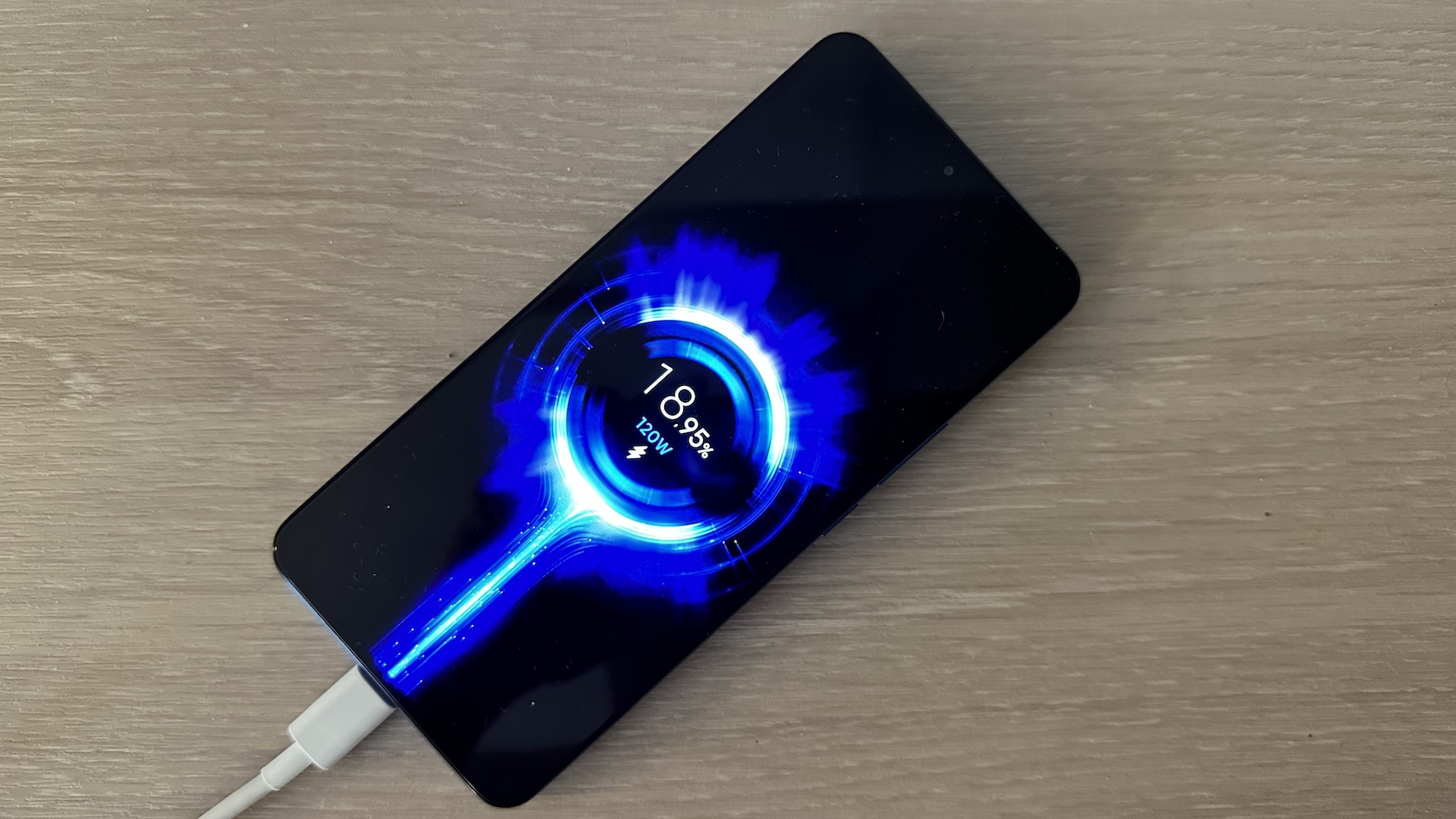
The higher resolution contributes to a slightly sharper screen image, but the Xiaomi 12T Pro is nowhere near the Xiaomi 12 Pro in terms of resolution and screen brightness. In other words, compared to the spring’s top model, we experience the screen of the 12T Pro as clearly inferior. This also applies to the brightness, which has a big impact on how usable the phone is outdoors if the sun is shining – it’s not even on par with its direct predecessor from 2021, the Xiaomi 11T Pro. We wonder.
Like the Xiaomi 11T Pro, by the way, the 12T Pro has built-in stereo speakers and audio developed in collaboration with Harman Kardon. The sound is a bit tinny, but fortunately the phone supports aptX from Qualcomm, which optimises the sound when streaming wirelessly via Bluetooth.
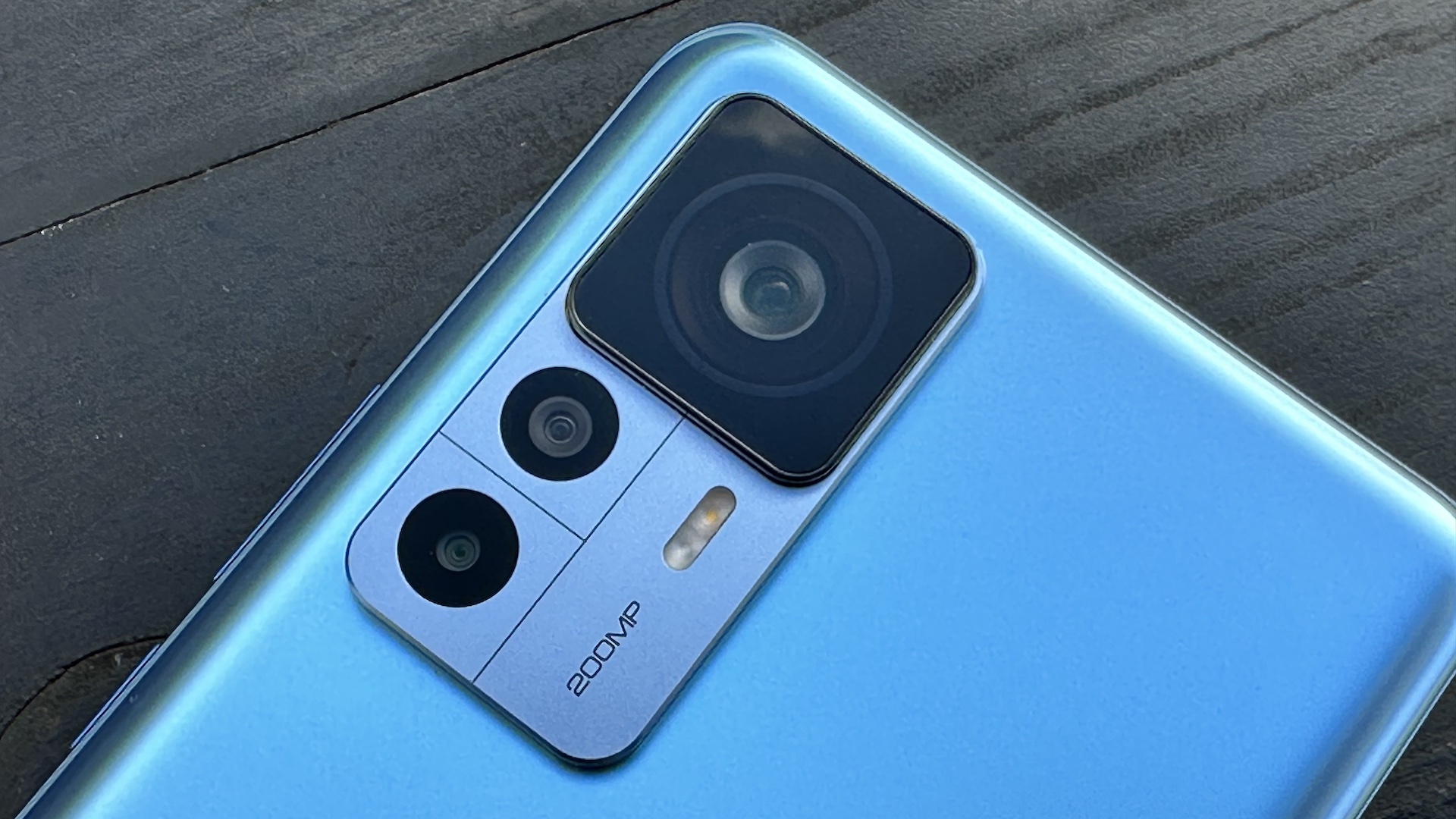
Camera
As mentioned, the Xiaomi 12T Pro has a completely different camera setup than the Xiaomi 12 Pro. Rather, the camera is similar to that of the Xiaomi 11T Pro, although the primary lens on the 12T Pro has grown and is now at a whopping 200 megapixels.

The 8-megapixel ultra wide-angle lens is shared by the 12T Pro and the 11T Pro, while the telephoto macro lens has been downgraded from 5 to 2 megapixels. It still has 2x optical zoom, though, and the large wide-angle lens has optical image stabilisation, which the Xiaomi 11T Pro didn’t have.
We’ve only tested one other handset with a 200 megapixel camera sensor to date, the Motorola Edge 30 Ultra, but the Xiaomi 12T Pro delivers better results than Motorola’s handset on all accounts.
High-resolution images shot with the 200-megapixel wide-angle lens are extremely detailed and sharp when taken in good lighting, just as portraits taken with the front camera are beautiful and lifelike without too much bokeh effect. On the other hand, Xiaomi is still not quite there with the macro function, which was also one of our criticisms when we tested the 11T Pro.
In addition, it should be mentioned that the Xiaomi 12T Pro, like all other Xiaomi smartphones, of course comes with fun extra features – like the so-called VLOG function that lets you easily create pre-edited video sequences using templates.
Performance and features
A heel has been chopped and a toe clipped to bring the price of the Xiaomi 12T Pro down compared to this spring’s top model, not least of which, as mentioned, is the absence of wireless charging. But on the other hand, there has been room for the latest Snapdragon 8+ Gen 1 processor from Qualcomm, just as the 12T Pro has the same insanely fast 120 watts of so-called HyperCharge technology as the Xiaomi 11T Pro and Xiaomi 12 Pro.
The technology enables 100 percent charging of the 5000 mAh battery in just 17 minutes, which is achieved through technologies such as dual charge pumps, dual cell battery structure, MTW, graphene coating on the lithium-ion battery and Mi-FC technology. It sounds complicated, but it works in practice – and even without the Xiaomi 12T Pro getting hot.

In addition to lightning-fast charging and the lightning-fast processor, the Xiaomi 12T Pro offers 12 gigabytes of LPDDR5 RAM and 256 gigabytes of built-in storage. Both in daily use and in benchmark tests, the phone delivers and is – in terms of raw performance – right up there with its predecessor, but also with more expensive competitors such as the Samsung Galaxy Z Fold 4.
Conclusion
It is very natural to compare the Xiaomi 12T Pro with the OnePlus 10T. Both mobiles can be said to be downgraded upgrades compared to the respective top models, both come with the fastest Qualcomm processor, Snapdragon 8+ Gen 1, and the two mobiles cost roughly the same.

With the Xiaomi 12T Pro you get a better camera, IP53 certification and a higher resolution screen, while the OnePlus 10T actually comes with even faster charging, namely 150 watts, than the Xiaomi 12T Pro. Amazing, but true.
But the camera in particular makes us recommend the Xiaomi 12T Pro if the choice is between the two Chinese T models.
On the other hand, it is crazy that the Xiaomi 12T Pro will cost substantially more than the 11T Pro did a year ago. In some respects, the 12T Pro is actually worse than its direct predecessor – such as the brightness of the screen, the size of the camera’s telephoto lens, and the choice of Gorilla Glass 5 for screen protection, where the 11T Pro came with Gorilla Glass Victus – so if you already own than Xiaomi 11T Pro you’ d better keep it.

We think
Amazing 200 megapixel camera, 120 watt fast charging, one of the fastest mobile processors on the market delivers top performance. The phone has to make do with IP53 certification and Gorilla Glass 5 screen protection to keep the price down. The screen isn't the brightest either. Still, the phone is considerably more expensive than its predecessor.
899 €
Specifications
- Operating system: Android 12 + MIUI 13
- Display: 6.67″ AMOLED 120 Hz, 1.5K (2712 x 1220), 446 ppi
- Processor: Snapdragon 8+ Gen 1 / Adreno 730 GPU
- Memory: 12 GB RAM / 256 GB storage (UFS 3.1)
- Cameras: 200MP f/1.7 wide angle w/ OIS + 8MP f/2.2 120° ultra wide angle + 2MP f/2.4 tele macro (primary) / 20MP f/2.2 (front)
- Wireless: 5G, wi-fi 6, Bluetooth 5.2, NFC, GPS (L1+L5), GLONASS, BeiDou, Galileo
- Dimensions and weight: 163.1 x 75.9 x 8.6 mm / 205 g
- Battery: 5000 mAh, 120 W fast charging
- Web: mi.com
Benchmarks
Geekbench 5: 1.330 (single-core) / 4.324 (multi-core)
AnTuTu 9: 1.047.741
GFXBench 5.0 T-Rex: 6.786
3DMark Wild Life Extreme: 2.768
PCMark Work 3.0: 12.691
Basemark Web 3.0: 588,88
Battery test: 6:48 hours
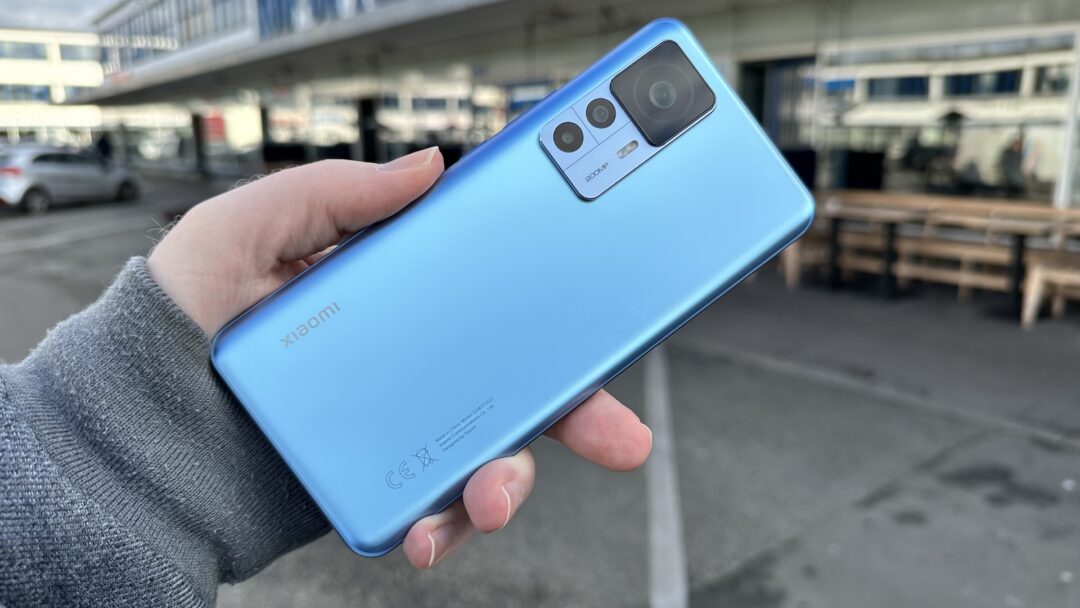




Nice one. How can i buy this. I want suggestion plz.